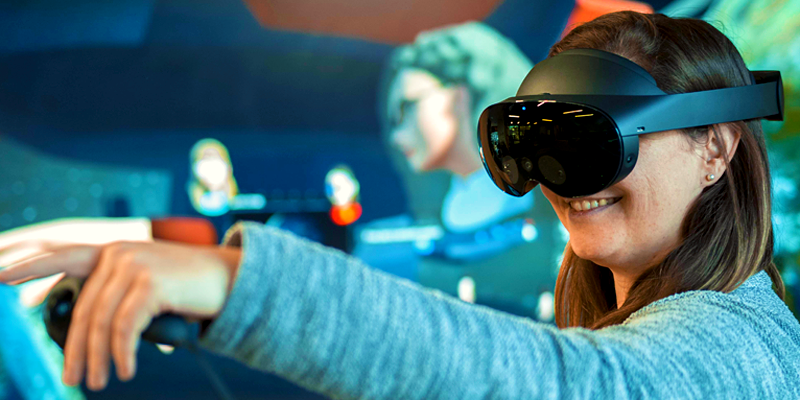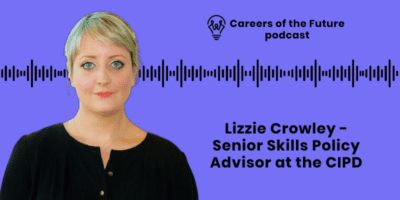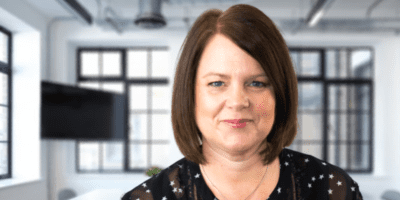Lisa Somerville is a system architect at VISR Dynamics, a Hull-based development studio. She is also working on a computer science PhD, through an industry-funded scholarship at the University of Hull, exploring potential applications for virtual reality in the energy sector. After completing her undergraduate studies at the University of Canterbury, Lisa has also worked in international development across several countries, project managing sustainability initiatives such as the installation of solar arrays and recycling plastic waste into 3D printing filaments.
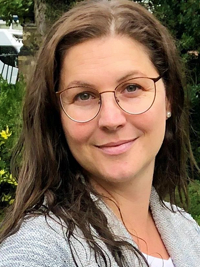
“It’s exciting to work in an area that can make a positive contribution to the largest threat to humanity and biodiversity.”
Breaking down the digital divide
After school, I moved to France and learnt to speak French. I initially worked on superyachts as a stewardess, then moved onto managing yacht refit projects and translating in shipyards. I then completed a BA Hons with a double major in French and in Media and Communications at the University of Canterbury. Alongside this, I completed a Japanese language diploma.
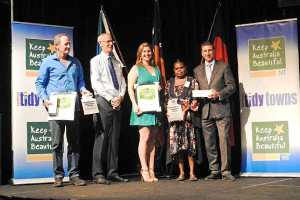
I then spent ten years working in community development in remote indigenous communities in Australia and Africa. I discovered a big digital divide between remote areas and urban centres and realised how power and water were fundamental in improving the lives of vulnerable communities.
Following this, I completed a Masters in Digital Media and a Postgraduate Diploma in Offshore Renewable Energy at the University of Hull. I am now completing a PhD funded by ORE (Offshore Renewable Energy) Catapult through the Aura Centre for Doctoral Training at the University of Hull Energy and Environment Institute (EEI).
My research uses virtual reality and a motion simulator to induce motion sickness in participants, I then evaluate how motion sickness impacts their thinking, to inform the offshore wind industry.
Aside from being a PhD researcher with EEI I am also the systems architect with VISR Dynamics, a Hull-based company that delivers cutting-edge virtual reality (VR), augmented reality (AR), and mixed reality solutions to prominent international clients. So, I am contributing to a major emerging technology.
Autonomy to find solutions
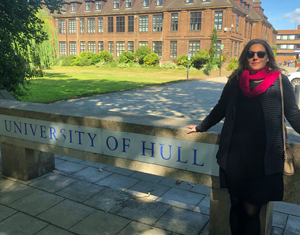
My day-to-day as a systems architect with VISR varies a lot, I could be at an event exhibiting a VR experience, working with the marketing team, talking with the developers about a product we are building, or meeting with clients to discuss potential solutions. (I’m also able to fit in some pats and cuddles with office dogs!)
No planet B
Energy is fundamental for our modern societies, it runs our water pumps, supermarkets, schools, and hospitals. It’s also an area where we can make a large contribution to reducing our carbon footprint and its impacts on climate change. It’s exciting to work in an area that can make a positive contribution to the largest threat to humanity and biodiversity. There is no planet B, so we need to take care of this one.
Emerging technologies helping to solve the energy crisis
Many emerging technologies can help solve the energy crisis: AI (artificial intelligence), robotics, and spatial computing (also known as the metaverse) are some of them. With AI we can determine the best times to complete repairs and maintenance on windfarms to lessen the loss of power, robotics can be implemented to prevent humans from undertaking dangerous tasks and spatial computing solutions can help connect teams from long distances, while still engaging in productive discussion.
Spatial computing technologies such as VR and AR are being applied in a wide variety of industries, including the offshore wind industry. They bring teams together from around the world to have richer interactions, for example, engineers can use VR to collaborate on a 3D virtual engine model prototype. This saves money, time, and reduces their carbon footprint by not travelling or manufacturing a physical prototype for initial discussions and design.
Developing key skills for collaborative working
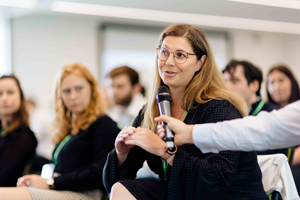
Developing robust relationships with others who have aligned goals and missions is key as the challenges are so great that collaboration is essential to tackle them.
Actively listening to others can be developed with practice. When you really listen and try to understand another person or group’s viewpoint, their needs, and the constraints they are operating within, you can figure out best how you can work together. You need to provide value to others for them to want to invest their time and resources in any project you propose, there must be win-wins.
It’s essential to deliver on what you promise to build trust and never overpromise something you aren’t confident you can deliver — your reputation and integrity are your most valuable asset.
Better products, stronger teams, and healthier work environments
Diversity builds better products, stronger teams, and healthier work environments. Research indicates higher rates of mental health issues, workplace accidents, and even suicides in workplaces with less diversity.
Currently, there is a lack of diversity in both the energy industry and tech development industries. There are goals put in place by the Government to increase female workforce participation in offshore renewable energy to 40% by 2030. (Currently, about 18% of the workforce in offshore wind energy is female.)
As a woman working in male-dominated environments, I feel welcomed and respected and would encourage women of any age to look to these industries as great opportunities to apply their skills to build a world we all want to live in.
Breaking into green energy and tech development careers
The green energy and tech development sectors need a wide range of skills — whatever your strengths, there will be a way for you to apply them, extend them, and learn new ones.
The best way to find out more is to attend free work expos. You could also consider apprenticeship schemes and further education. Research the industries online to see what jobs exist currently that require skills you can transfer from other industries or study a course appropriate to the industry to build skills. Apply for jobs even if you don’t meet 100% of the criteria.
You can also speculatively approach companies even if they are not actively advertising any roles. If you are interested in the company, you’ve done your research and believe you can offer them value, then you can contact them directly and pitch yourself. Don’t be afraid to get a ‘no’. That’s not failing. Ask for feedback from your interactions so you can learn from it.
Coming up
In my research role with the Energy and Environment Institute, I will be running the experiments I have designed. That will be a large challenge for me as I need to recruit 176 people — 88 men and 88 women. It’s really important to me that I include women too as much of the research so far only includes men, so we just don’t have the knowledge we need yet on women’s experience of motion sickness. It’s exciting to think that I am able to make a contribution to knowledge in this area through research.
With my role at VISR, we are rolling out an exciting, blended learning teaching support tool called Stage Pro into colleges. (See the YouTube clip below.) It’s great to see classes taught in virtual reality. I would have loved to have learned more complex concepts in subjects like chemistry in this way when I was at school, as I am a very visual learner. I’m glad I can make a difference to the members of the next generation and hopefully spark their interest by bringing learning to life in new ways!
Reference links
- https://www.linkedin.com/in/lisa-m-somerville-81a5a012/
- https://visr-vr.com/
- https://www.linkedin.com/company/visr-vr/
- https://www.hull.ac.uk/work-with-us/research/institutes/energy-and-environment-institute
- https://auracdt.hull.ac.uk/
- https://auracdt.hull.ac.uk/lisa-somerville/
- https://www.linkedin.com/company/aurainnovation/

